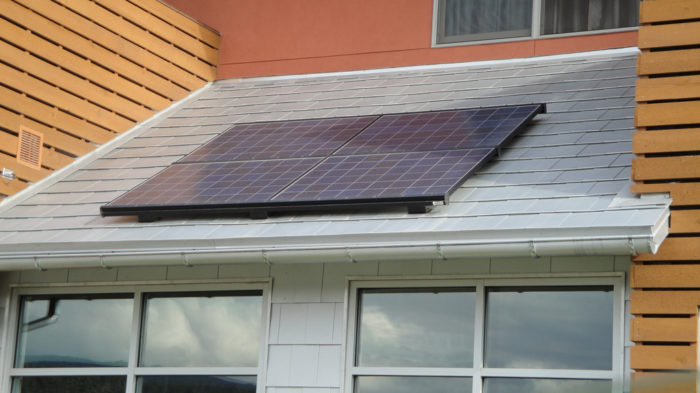
Image Credit: Dave Dugdale / Creative Commons License / Flickr
If you’ve installed solar panels on your roof and feel aglow with environmental virtue, you may be in for a rude awakening. There’s a good chance someone else has purchased your halo and is wearing it right now.
In most states (including California), rooftop solar panels earn Renewable Energy Certificates, which quantify how much clean electricity they produce. But if panels are leased or installed under a power purchase agreement, it’s the “third-party owner” — not the homeowner — who gets those certificates. Most then turn around and sell the RECs, a process that magically turns brown electrons green.
Here’s how it works: Joe’s Solar puts panels on your roof that produce 7,500 kilowatt-hours a year, and Joe sells you the electricity under a power purchase agreement. Because Joe still owns the panels, he gets credit — in the form of RECs — for that renewable electricity. Meanwhile, Bob’s all-fossil utility wants to “green up,” so it buys RECs from Joe. That allows Bob to relabel 7,500 kilowatt-hours of his coal- or gas-fired power generation as “renewable energy.”
It may sound strange, but a market to sell or trade RECs can be extremely useful. California, for instance, has a mandate for its utilities to generate 33% renewable power by 2020, but some parts of the state have little sun or wind resources. Still, utilities in sunny or windy spots can produce more than their requirement and then sell the extra RECs to areas where it would be much more costly, or impossible, to hit the target. Thus, the RECs market allows a utility in one region to finance additional green energy production in another where it is cheaper, supporting more carbon reduction at a lower cost to consumers.
That seems sensible enough. But something’s wrong if the buying and selling utility companies both claim that green power as their own. And that’s essentially what’s been going on with solar rooftops.
Most new systems are owned by third parties
Today about 70% of new solar systems are owned by third parties that typically resell the associated RECs to a company with a well-publicized goal of being “carbon neutral” or to a power company that wants to claim it’s delivering a high percentage of green energy. (Homeowners are notified of this in the fine print of their contracts, which they probably never read.)
One might see this as a creative way to make both the solar homeowner and the REC buyers feel good about saving the planet. But the Federal Trade Commission is a real killjoy when it comes to such double counting of virtue.
The FTC recently issued legal guidance stating that if a solar company sells its certificates, it is deceptive to tell homeowners they are getting “clean,” “renewable,” or maybe even “solar” electricity with their lease or power purchase agreement. The FTC guidance uses this illustration:
A toy manufacturer places solar panels on the roof of its plant to generate power, and advertises that its plant is “100% solar-powered.” The manufacturer, however, sells Renewable Energy Certificates based on the renewable attributes of all the power it generates. Even if the manufacturer uses the electricity generated by the solar panels, it has, by selling renewable energy certificates, transferred the right to characterize that electricity as renewable. The manufacturer’s claim is therefore deceptive.
Read the fine print in your contract
To be clear, there is nothing necessarily wrong with installing solar panels in one location and letting someone in another location claim credit, as long as everyone understands that this is happening. But many individuals who signed up for a rooftop solar system might be unhappy to learn that they were enabling some fossil-powered company to claim it has gone green.
The lesson here is that if you choose to go solar, find out what will happen to the RECs. If they are sold to someone else, you get to use the electricity, but you have to give back the halo.
Severin Borenstein is a professor of business and public policy at the University of California Berkeley. This was originally published by The Los Angeles Times.
Weekly Newsletter
Get building science and energy efficiency advice, plus special offers, in your inbox.





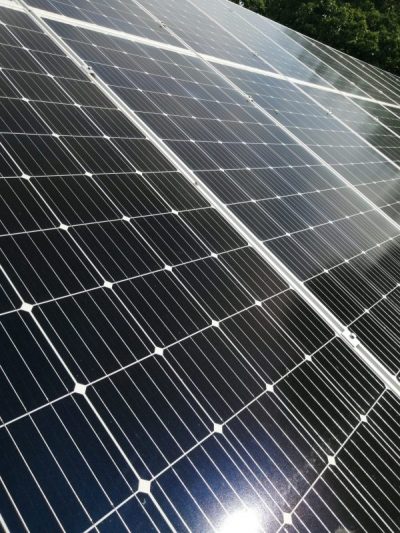
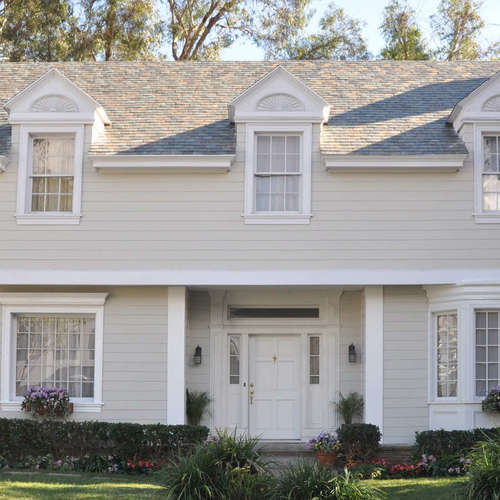
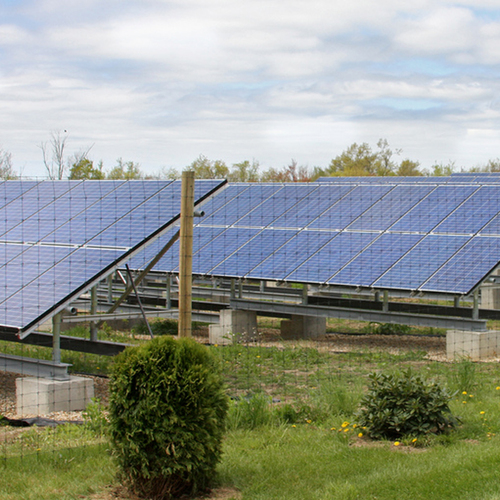
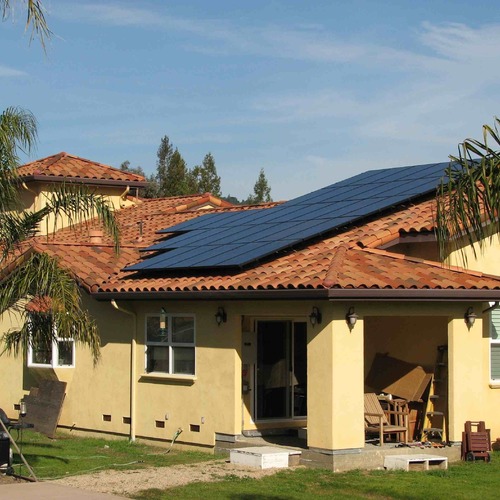






19 Comments
Big Surprise
Double dipping for profit, and we want to elect leaders who will give even more tax dollars to the already rich and powerful corporations on the public's back
The public needs to wisen up
Alan
Well let's think about this. We allow consumers to sell back to the grid at the retail or sometimes wholesale rate. Consequently the power purchased by the utility is in fact "green". Why should the utility not be allowed to consider that purchased (i.e. ownership) power as green?
Perhaps owners of solar panels shouldn't be able to sell back to the grid or utilize tax credits. Then the utility can't take ownership of "green" energy.
On another note that fact that 70 percent of new PV arrays are leased (ie. described as third party ownership per the article) the homeowner doesn't "own" anything and is instead renting. The owner of the array has every right to do what they wish with the credits.
Response to Alan B
Alan,
There are two issues here:
1. Is there anything wrong with developing a market for SRECs (solar renewable energy credits)? This question is debatable, but I think that the SREC market is useful. The SREC market works hand-in-glove with state-mandated renewable energy targets; these targets help us make the transition to a future with reduced carbon emissions -- a desirable goal. (If we fail in our attempt to reduce carbon emissions quickly, the environmental results are likely to be disastrous.)
2. Do homeowners who lease PV panels understand the way the SREC market works? It's possible that many homeowners don't. Does this issue matter? Hard to say -- but it's certainly a good idea to insist that PV leasing companies be transparent and honest in their marketing.
I have no objection to carbon
I have no objection to carbon credits, but using those credits to reduce carbon while producing the same amount of carbon is unproductive, its only productive if it actually reduces total carbon produced. Claiming a credit twice is fraud even if it is legalized
Response to Alan B
Alan,
The point of the SREC market is to encourage the installation of PV arrays, thereby (hopefully) reducing the need for fossil-fuel plants. When SRECs are used to account for PV installation levels, they are not counted twice. (They are only counted twice in a very loose sense of the word "counted" -- if you include boasts by uninformed homeowners who say, "Most of my electricity comes from solar" when the SRECs have already been sold. This is a type of double-counting, I suppose, but these homeowner boasts do not show up in the accounting used to hit state-mandated renewable energy targets.)
Ah, fair enough, my bad
Ah, fair enough, my bad
Our community solar project kept the REC's
Last year I bought into a community solar project in Vermont. Our project voted to keep the REC's rather than sell them. We decided to pay a little extra so that we can honestly claim to be using our own electricity. But most community solar projects do not offer this alternative to buyers.
Thanks for increasing visibility of this process so that more buyers will be aware of the issue.
@David
OT but...I've read lately that large wind farms are getting postponed in VT as communities are loath to install them.
It's important to differentiate between SRECs and RECs
SRECs operate on the same basic concept as RECs - that each 1000 kWh of energy generated via renewable method earns a certificate - but SREC programs are created and operated at the state level. At least in Massachusetts, SRECs are purchased by the utilities in efforts to comply with DOER mandated purchasing requirements, and allow the utilities to meet these mandated renewable portfolio standards set annually by the DOER. These SREC purchases do not offset environmental malfeasance and their "green" value is not re-marketed. I can't speak with authority to SREC programs in other states, but it's unfortunate that an article focused on consumer misunderstanding of energy policy would miss that detail.
Response to Andrew Toomajian
Andrew,
You have accurately described SRECs. Do you have any evidence that RECs (the term used in some states) differ from SRECs? If not, I'm not sure that I understand your point.
this article makes no sense
this article makes no sense to me, the whole point of the credits is exactly this type of trade. Eventually it will be cheaper to actually produce green energy, but since you cannot build that type of infrastructure overnight, this is the system
maybe I am missing something
I am sure big utilities would love for this system to go away
@Keith
The presumption is that utilities are evil and consequently have no right to 'co-opt' the smugness of residents who have a PV array.
PV smugness
I would be happy to sell my PV smugness to the highest bidder:-)
If you have a PV system, why not sell your SRECs?
David Martin noted (in Comment #7) that he is a part owner of a PV system, and that the owners decided not to sell their SRECs. I sort of understand why -- I guess that allows him to say, "my electricity is solar" -- but it's a little odd.
The reason that state legislatures have passed renewable energy targets is to encourage the installation of PV systems. The SREC market documents these investments in PV, and lets us all know how close we are getting to those targets.
If David Martin's group decides not to sell the SRECs, what happens? Well, their PV system is not counted toward the state's renewable energy goal -- so in some sense, if the goal is eventually reached, it will have been met without David Martin's help. That means that there will be a little more PV in his state (Vermont) than the state knows about. That's good, I guess.
It also means that, since David Martin has withheld his SRECs from the open market, the value of the SRECs on the market will rise slightly (because of the scarcity that David Martin has encouraged). That is good for other PV owners, I guess, because they will get a little more money for their SRECs than they would have if David Martin had sold his SRECs.
REC sales are only one part of making a solar project viable
As a ME/NH solar installer, this isn't really much of an issue for us since nearly all of our installations are owned by the customer and they can choose whether to sell their RECs or not. However, since this topic has caused waves in the industry we put out our counter-analysis:
http://www.revisionenergy.com/do-rec-sales-mean-a-solar-project-isnt-green/
In our opinion, "Sale of RECs from a solar project does not magically turn the power from that project into dirty, coal-fired electricity. When a new solar project comes on line, and the project host uses that solar, as a matter of physics the host is in fact using clean power. The same is true economically. The solar developer and project host are usually also contributing far more to the project cost than the buyer of the RECs. The efforts of the developer and the host have resulted in the construction of a renewable energy plant that would not otherwise exist."
I'd say we heartily agree with the author though that consumer education is important, though I see why that's tough. Most folks don't even know what a kilowatt-hour is let alone a REC (or their various classes, or SRECs).
- Fred Greenhalgh
ReVision Energy
keep in mind state level policy varation here
This is something to ponder in a power purchasing agreement state, but even if it's true nationwide that most system are leased--I did not know that 70% figure, interesting--it definitely may not be the case that the systems in a particular area are predominately leased under power purchasing agreements. It looks like 26 out of 50 states allow power purchasing, so keep the slimness of that majority in mind. Speaking from a state (North Carolina) and general region (Southeast) with generally different rules (and in my state's case, that actively disallows power purchasing agreements), I'll just add that it can be huge nerdfest, wading into the economics and accounting in the particular state or utility policies you fall under, or that business falls under whose claims to green power you might be scrutinizing.
Info on which states allow power purchasing agreements: http://ncsolarcen-prod.s3.amazonaws.com/wp-content/uploads/2016/01/3rd-Party-PPA_012016.pdf
Even if a business or homeowner is leasing their solar array or are otherwise selling all their RECS/SRECS, I'm not really bothered that their boasting about how their electricity comes from solar is being misleading. No matter the regulatory framework, they're making the use of solar electricity visible to other people who probably don't know nor care to nerd out to the subtleties, which reinforces the impression that solar is viable and easy and becoming commonplace, which might make other homeowners or businesses contemplate their own options to get on board too.
Personally, I'd be an advocate for ownership over leasing, but it's all tools in the toolbox. (Just one my state doesn't allow.) I say get this stuff on the grid by all means necessary, using good state level policies that facilitate it in the best way for the resources of that state. If you've got a REC/SREC market or a portfolio standard, tighten the rules over time, keep the pressure on that way.
(edited for grammatical clarity)
misleading to suggest that third-party ownership is less green
I find it misleading that this article, like a similar one published by Mother Jones entitled The Problem With Rooftop Solar That Nobody Is Talking About: Where does the green energy from your panels really go? suggests that PPA companies mislead customers by selling SREC's and that, by implication, it is more green to own solar panels yourself.
Any grid-tied rooftop solar is essentially a power generation source rather than being consumed directly by the home, and anyone with financial sense will sell their SREC's. Really, how many people out there purposely don't take advantage of SREC income that they are entitled to?
Response to Harry Voorhees
Harry,
This blog has generated a healthy dialog. GBA appreciates all the comments. Like you, I find that some of the opinions expressed in Severin Borenstein's blog paint an alarming picture which is unwarranted.
GBA welcomes guest blogs by authors with a wide variety of perspectives. We don't just publish one type of article. When controversial articles generate debate, we all benefit from the variety of viewpoints expressed on these pages.
Disclosure is important
As Martin observed in comment #14, one result of not selling our REC's is that the total amount of solar production will exceed the minimum set by the state. Some of us decided that for us, the return on our investment was good enough that we were willing to keep the REC's rather than sell them.
While I have no objection to others selling their REC's or permitting the developer to sell the REC's, I think that developers who are selling the REC's should be required to explain so that purchasers understand that their green energy is being sold, in our case to an out of state utility.
Buyers should understand that it is more green to retain the REC's. After the REC's issue was explained to us, the members of our community solar farm unanimously voted to keep them. Don't under-estimate the possibility that others might do the same if they had that option explained to them.
Log in or create an account to post a comment.
Sign up Log in